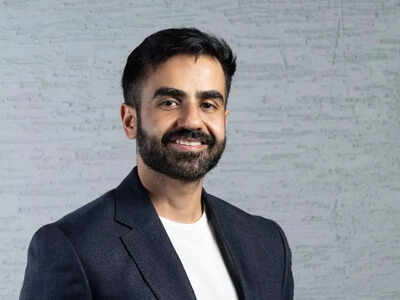
In a recent X post, Zerodha co-founder Nikhil Kamath challenged one of the most deeply held beliefs about education. Referring to the World Economic Forum’s Future of Jobs Report 2025, he wrote, “The days of 4-year college courses are over.
Lifelong learning is the new norm.”It is a statement that reflects the changing pulse of the global job market. As industries undergo digital transformation and automation reshapes traditional roles, Kamath’s message is clear: students must rethink how they prepare for the future.Here are five important questions every student should ask, based entirely on the data and insights Kamath shared.
Are four-year college degrees still a reliable investment?
Kamath’s post invites students to reflect on the real value of a degree in today’s world.
College fees are rising but the certainty they once promised is slowly eroding. The WEF report, which Kamath refers to, outlines that nearly 39% of core skills are expected to change significantly by 2030.Traditional degrees may not keep pace with such rapid shifts. For students entering college now, the real question is not whether a degree is helpful but whether it is future-ready. If your course is not aligned with tomorrow’s needs, the return on your academic investment may fall short.
Are you preparing for the jobs that are actually growing?
Kamath draws attention to the WEF's identification of emerging job categories. Fields such as artificial intelligence, renewable energy, big data, and green technology are expected to see major expansion. So are care-related roles like nursing, therapy, and counselling.In contrast, many clerical and support roles that were once considered stable are going to face a steady decline. Choosing a course without aligning it with actual job market growth trends may leave you underprepared, regardless of how prestigious the institution is.
Is your current education building the skills employers value most?
According to the WEF Report, analytical thinking is the top core skill employers are prioritising across industries. It is followed closely by attributes like creative thinking, resilience, flexibility, and technological literacy. However, when it comes to specialised technical capabilities, AI and big data top the list as the most in-demand skills that employers are actively seeking and investing in.This raises a crucial question for students.
Is your current academic program equipping you with both foundational thinking skills and exposure to cutting-edge tools like AI, machine learning, or data analytics? If not, it may be time to expand your learning through practical projects, industry certifications or digital tools that reflect where real job growth is happening.
Are you ready to learn throughout your life?
Kamath’s most pressing message is that lifelong learning is no longer optional. It is now central to staying relevant.
Technologies and tools are evolving faster than most institutions can update their syllabi. Even after landing a job, professionals are expected to upskill, reskill, and sometimes pivot completely.For students, this means building the habit of self-directed learning early on. Short-term courses, online certifications, and hands-on training will likely become a regular part of your career path. A degree may open the first door but it is continuous learning that will keep you moving forward.
Do you have the mindset to adapt when your industry changes?
According to the WEF, 92 million existing job roles are expected to be displaced by 2030, while 170 million new jobs will be created, resulting in a net gain of 78 million jobs over the next five years. This reflects a job market in active transformation rather than decline.Kamath is essentially asking students whether they are preparing for disruption or simply hoping to avoid it. The willingness to learn new tools, take on new challenges, and build cross-disciplinary knowledge may matter more than your CGPA.
Being adaptable could turn out to be your strongest asset.Nikhil Kamath is not saying that college has no place. What he is questioning is the blind faith placed in a system that may no longer guarantee the outcomes it once did. A college degree can still offer structure, credibility, and community but it is no longer the finish line.
In today’s world, success is shaped by what you keep learning, not just what you once studied. Before choosing your degree, or continuing with one, take a moment to ask the questions that matter. Your future may depend on the answers.

 1 day ago
53
1 day ago
53




























 English (US)
English (US)